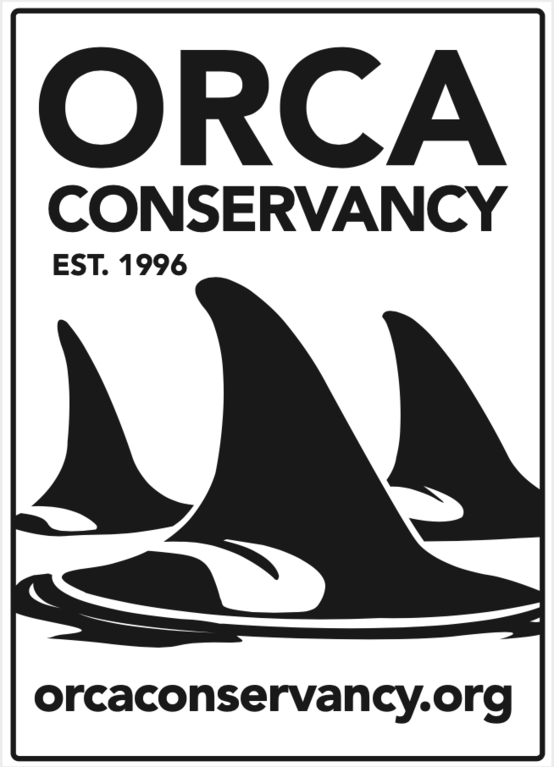It's Time To Be Part of the Solution ... Not the Problem
August 25, 2016 With the recent news of J14, a 42-year old matriarch of J-Pod, being listed as missing and presumed deceased from the critically endangered Southern Resident Community of orcas -- NOW more than ever is the time to embrace doing YOUR part in being part of the solution. This is a national issue, not just a local one.This population is clearly struggling and needs all the help it can get. The situation appears critical -- but it is not impossible to correct -- if we all make some changes in our daily lives. NOW.
With the recent news of J14, a 42-year old matriarch of J-Pod, being listed as missing and presumed deceased from the critically endangered Southern Resident Community of orcas -- NOW more than ever is the time to embrace doing YOUR part in being part of the solution. This is a national issue, not just a local one.This population is clearly struggling and needs all the help it can get. The situation appears critical -- but it is not impossible to correct -- if we all make some changes in our daily lives. NOW.
What Can YOU DO?
Stop Buying One-Time-Use Items Like Paper Towels
Paper towels: use rags or towels instead. We buy paper towels largely because, well, because we’ve always bought paper towels. Use rags or cloths instead, toss them in with your weekly wash and you’re all set. By doing so you’ll save money and a few trees too. If every household in the US used just one fewer 70-sheet roll of virgin fibre paper towels, we’d save 544,000 trees from the chainsaws every year – not to mention the energy used in their production and transportation.
Refuse Plastic Bags
Carry your own reusable bag, and use your own two hands instead of plastic bags if you’ve bought just a few small items. When you’ve bought just one small item or a few which could be easily carried, politely refuse the bag they’re about to be put in. Carry your purchases with your own two hands and bring reusable bags for larger shopping trips. If this seems tiresome, let me lay some guilt down by sharing this heartbreaking statistic: more than 100,000 marine animals die every single year from getting tangled in plastic bags or ingesting them. One million plastic bags are used every single minute worldwide. They’re used for an average of five minutes, yet take 1,000 years to break down. We’re better than this!
Be Meat- and/or Dairy-Free Once a Week or More
Vegetables: nutritious, and much more environmentally friendly than meat. Buy Local! Decreasing your meat intake by just one burger a week can result in the same environmental benefit as taking your car off the road for 320 miles (515km). Ditching the dairy can also confer significant health benefits, reducing fat intake and slashing risk factors for chronic illnesses such as cardiovascular disease or type-2 diabetes. Understandably, going completely vegetarian or vegan can be an intimidating prospect, so avoid biting off more than you can chew by simply committing to doing it once a week.
Dive into Secondhand Shopping and Natural Fibers
Consignment shops. Yes... I said consignment shops. The clothing industry looks damn good, right? However, it can be a dirty, dirty business. Immense amounts of resources are used in textile manufacturing, fast fashion is everywhere, and 85% of shoreline plastic pollution comes from the plastic fibers in synthetic clothing material such as nylon. Avoid the mall and find a great secondhand or consignment store instead. AND, you'll save some money, too!
Carry Your Own Reusable Water Bottle
Did you know if you went a year without buying even ONE plastic bottle, you’d single-handedly save over 7,000 liters of water? This is a no brainer, and as for the bottles, well, it takes seven liters of water to make one plastic water bottle. Seriously. Americans used about 50 billion plastic water bottles last year. However, the U.S.'s recycling rate for plastic is only 23 percent, which means 38 billion water bottles – more than $1 billion worth of plastic – are wasted each year and wind up in land fills.
Nutrient Pollution
Nutrient pollution is one of America's most widespread, costly and challenging environmental problems, and is caused by excess nitrogen and phosphorus in the air and water. Fertilizers, yard and pet waste, and certain soaps and detergents contain nitrogen and phosphorus, and can contribute to nutrient pollution if not properly used or disposed of. The amount of hard surfaces and type of landscaping can also increase the runoff of nitrogen and phosphorus during wet weather.
Speak UP - Allow Your Voice To Be Heard!
The Southern Resident population of orcas are a critically ENDANGERED SPECIES! One of the most important parts of their listing on the Endangered Species Act (ESA), is a little thing called 'citizen oversight'. That means people, like you and I, can sue the feds if they’re not doing right by the whales. Feel free to sign petitions, write to your local government representative(s), send letters and emails - get involved!
The Orcas Need Your Help
Support Wild Whale Research. Orca Conservancy is a registered Washington State 501(c)(3) non-profit organization, with no paid staff. All donations go towards scientific research and/or projects that are assisting with the recovery of this population. We don't keep a penny. DONATE TODAY
